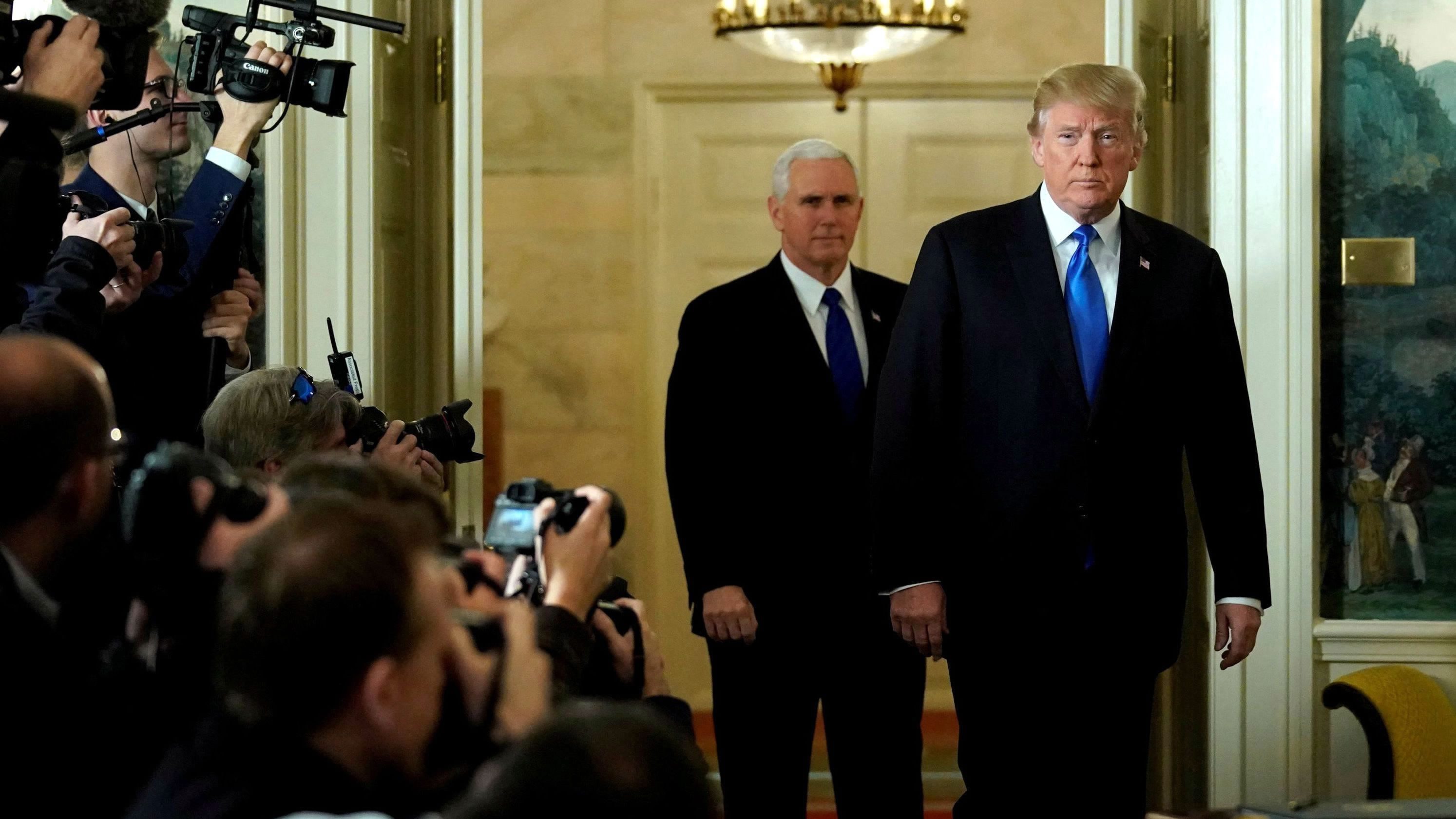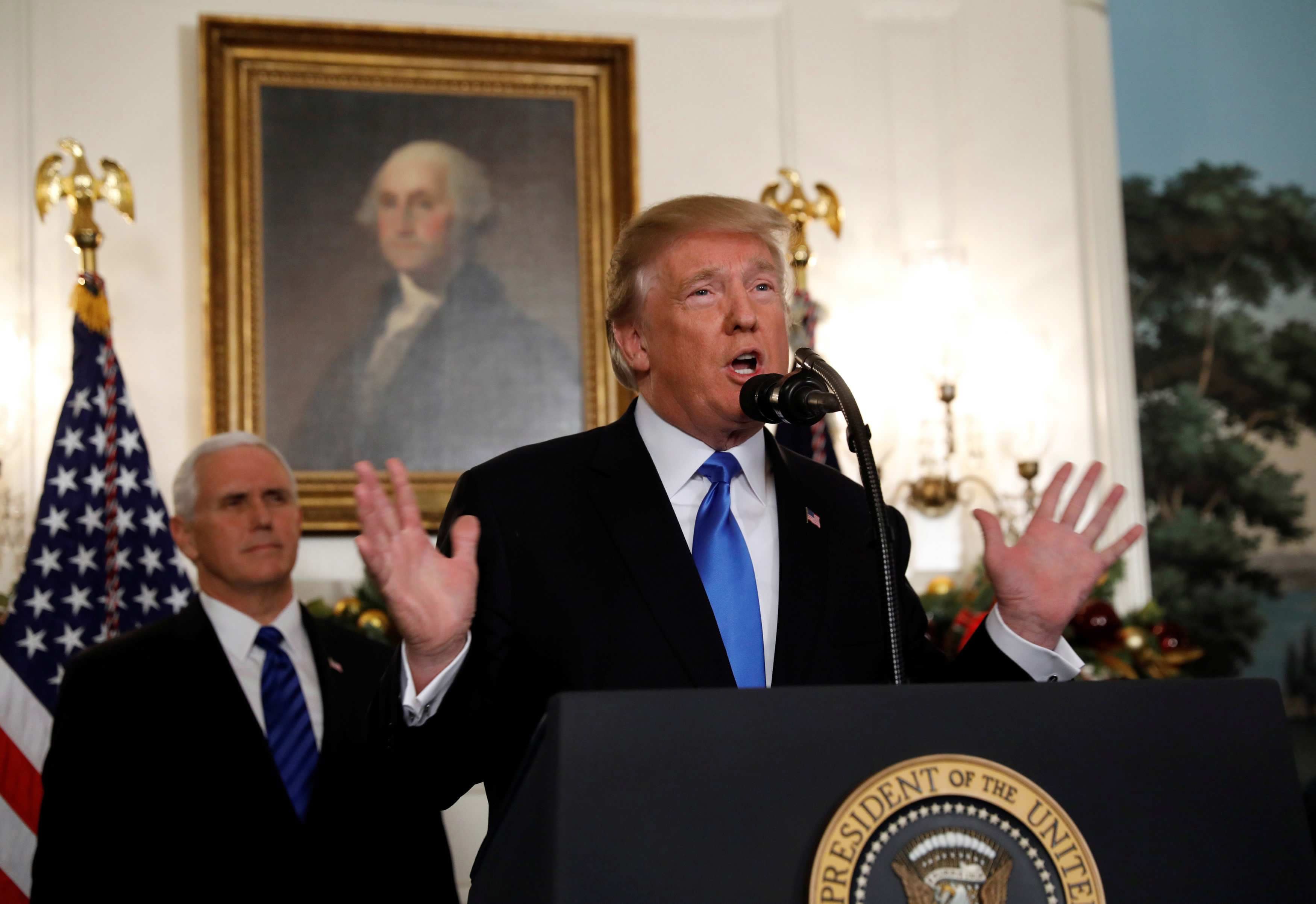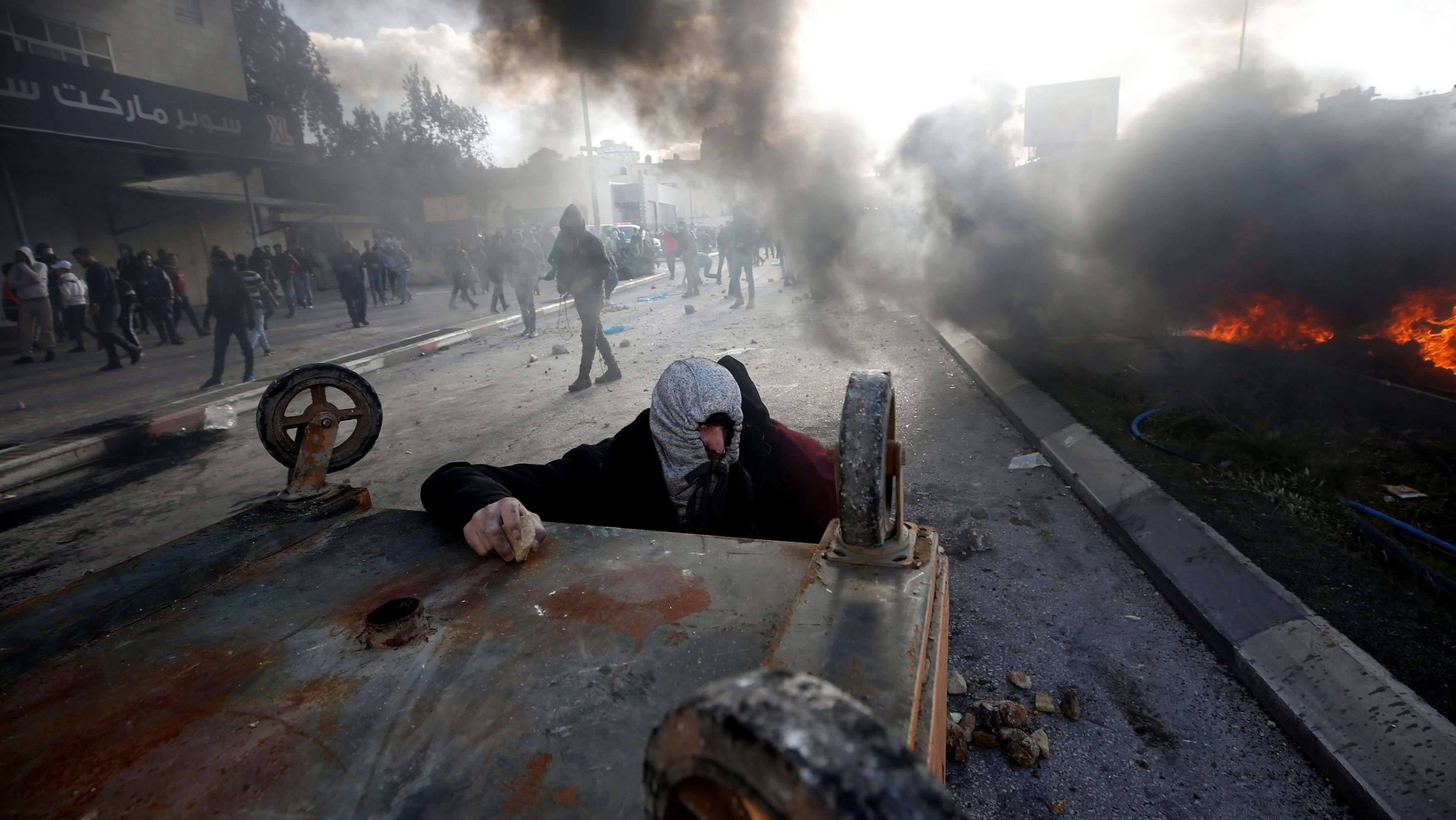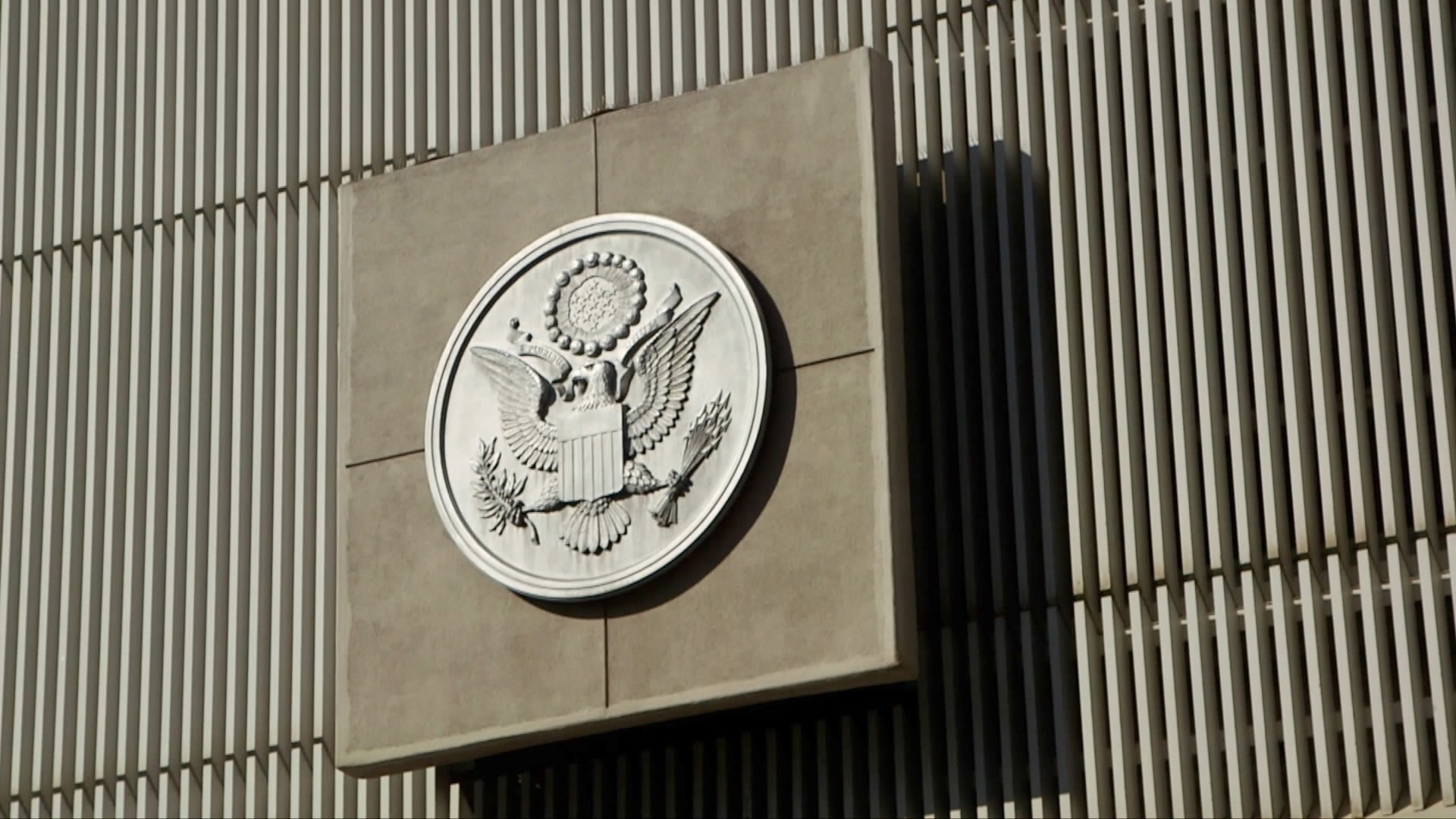
Opinions
17:17, 08-Dec-2017
In the Middle East, political hand grenades are not to be played with
Guest commentary by Meir Javedanfar

There is an old English proverb that says: “The proof of the pudding is in the eating”, or in other words, don’t judge anything until you have seen its results.
And we in the Middle East should find out very soon the results of Trump’s recent policy change regarding Jerusalem. A new policy which recognizes Jerusalem as Israel’s capital, which also calls for the transfer of US embassy from Tel Aviv to Jerusalem.

US Vice President Mike Pence listens as President Donald Trump announces that the United States recognizes Jerusalem as the capital of Israel and will move its embassy there, during an address from the White House in Washington, US, December 6, 2017. /Reuters Photo
US Vice President Mike Pence listens as President Donald Trump announces that the United States recognizes Jerusalem as the capital of Israel and will move its embassy there, during an address from the White House in Washington, US, December 6, 2017. /Reuters Photo
In the short term, the most important criteria which will be used to judge the results of this policy change will be the Palestinian reaction. Hamas has already called for a new Intifada. Should this materialize, it will be blamed on Trump’s policy change, thus making it look like a failure to many in the Middle East, including some in Israel.
The Israeli army is already worried about such a scenario, which is why it has placed its forces on high alert before Trump made the announcement. So far, what we have seen are clashes between Palestinian protesters and Israeli forces, but we’ll have a few more weeks to wait before we can judge whether we are facing a full blown Intifada.
In the long run, the most important criteria which will be used to judge the results of the policy change will be whether it will facilitate peace between the Israeli and Palestinians, because if it does, it’d be considered as a major achievement for US in the region. In this regard, the policy already looks like a failure.
Jerusalem is a very sensitive area for both Israelis, Palestinians and many in the Islamic world because of what it represents.The Al Aqsa mosque is the third holiest site in Islam. As its situated in Eastern Jerusalem, territory which Palestinians and the international community consider as occupied, anything that happens which could be interpreted as annexing it is to be preferably avoided. If not, to be treated with much sensitivity.

A Palestinian protester takes cover during clashes with Israeli troops at a protest against US President Donald Trump's decision to recognize Jerusalem as the capital of Israel near the West Bank city of Ramallah on December 7, 2017. /Reuters Photo
A Palestinian protester takes cover during clashes with Israeli troops at a protest against US President Donald Trump's decision to recognize Jerusalem as the capital of Israel near the West Bank city of Ramallah on December 7, 2017. /Reuters Photo
For Jews, the Wailing Wall which is situated in Eastern Jerusalem is the holiest site in their religion. Meanwhile what happens to the area surrounding it and Jerusalem as a whole is also of much importance to many Israelis and Jews as before Israel occupied Eastern Jerusalem in 1967, it was extremely difficult if not impossible for many Jews to pray there as it was under Jordanian control. Bringing the Wall under Israeli and Jewish control again in the 1967 during the Six Days war was almost like a miracle for numerous Jews. Almost like a sign of redemption.
And the aforementioned reasons are why many previous US Presidents left this topic well alone, because they realize that touching it is like playing with a hand grenade which has a notoriously loose pin.
And people who like to play with handgrenades lose much of their credibility as mediators, because they are seen as erratic and irresponsible. This is why with this recent policy change, Trump has caused damage to America’s image in the Middle East as a mediator.
What is even more interesting is that President Trump is well aware of the security risks which his latest policy move brings, as his own State Department issued travel warnings before he made his announcement.

US Embassy in Tel Aviv /CGTN Photo
US Embassy in Tel Aviv /CGTN Photo
So why do it?
The answer in this case is likely to be found not in Jerusalem, but approximately 10,000 kilometres away in Washington DC. In November 2018, the Republican party will have to stand in midterm elections. The results of these elections will be judged as a referendum on Trump’s presidency.
One of Trump’s most steadfast supporters has been the Christian Evangelical community, who for religious purposes have been demanding that the President moves the embassy. And this was first and foremost aimed at securing their vote for himself, for what has a been a controversial term in office for Trump. We should note that this November Trump suffered from the lowest approval ratings compared to any other modern US president.
And in case you think he did this to win the “Jewish vote” in the US, then you’d be wrong. For Trump, they are a lost cause as more than 70% of US Jews voted for his rival, Hillary Clinton. This is one reason why the powerful pro-Israel AIPAC lobby which is usually very vocal on issues relating to Israel, stayed well clear of Trump’s preparations for his upcoming policy change on Jerusalem.
(Meir Javedanfar is an Iranian–Israeli Middle East analyst. He teaches at the Interdisciplinary Center Herzliya and is a research fellow at the Meir Ezri Center for Persian Gulf Studies at Haifa University. The article reflects the author’s opinion, not necessarily the views of CGTN.)

SITEMAP
Copyright © 2018 CGTN. Beijing ICP prepared NO.16065310-3
Copyright © 2018 CGTN. Beijing ICP prepared NO.16065310-3